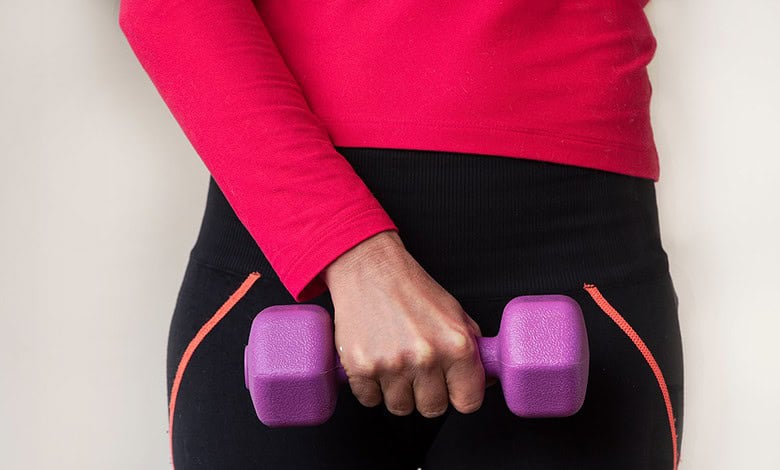
Menopause comes with several symptoms, like hot flashes, sleep issues, vaginal dryness, mood swings, and much more. The severity and intensity of the symptoms vary from one woman to the other. A lot depends on your diet, activity levels, and overall lifestyle. That’s why staying fit physically and mentally is of utmost importance. So, how do you keep fit during and after menopause? Here are some tips to help. Before I do that, here are some words to introduce myself.
Hello! I am Dr. Karen Pike, and have long been associated with the medical field. I found the lack of awareness among women about menopause alarming, so I created my website, Simply Menopause. You can visit it to learn more about me and my articles on several aspects of menopause.
Why Do You Need to Be Fit In Menopause?
You must wonder why healthcare professionals stress so much on fitness during menopause, right? Well, there are reasons for it. Let’s look at them:
- Reduced estrogen levels make women more susceptible to abdominal weight gain. So, you can avoid much of that when you exercise regularly and work towards body fitness.
- Another aftereffect of low estrogen levels is reduced bone density, which makes people prone to osteoporosis and other bone-related issues. Their bones may become weak and brittle, putting them at risk of fractures. Exercises like running, jogging, brisk walking, dancing, and playing outdoor games eventually help build and strengthen bones.
- Running, brisk walking, or any form of physical activity improves cardiorespiratory function. Low estrogen levels can increase total cholesterol in the blood, putting people at a greater risk of high blood pressure, stroke, and heart attack. Remaining physically active can significantly minimize these risks.
- The hormonal fluctuations can lead to musculoskeletal disorders in women, and some may suffer from increased incidences of low back pain. Besides medication and massage therapy, exercises like walking, deep breathing, stretching, and yoga help lessen low back pain.
- Increased stress, mood swings, and sleep issues in menopause aren’t uncommon. Of the several things you could do to manage them, one remedy is to remain physically active and focus more on meditation and relaxation techniques. You can eliminate or minimize anxiety levels when you have a well-worked body and a relaxed mind.
- Digestive disorders, also common in menopause, improve with exercise. Being physically active helps food pass easily through the digestive tract, lessening incidences of constipation and bloating.
Tips to Remain Fit In Menopause
So, now the question is, how to stay fit during menopause? Here are some tips that may help you remain active physically and mentally in menopause:
-
Focus On Aerobic Exercises
Aerobic exercises like jogging, swimming, biking, brisk walking, and water aerobics help shed added pounds and thus effectively maintain a proper weight. Aerobic exercise also helps boost your mood, maintain sound heart health, and help with digestion. It also works wonders for those having trouble managing stress. Start with 10-20 minutes of exercise, then increase the duration and difficulty level. Doing aerobic exercises for 2 hours 30 minutes weekly will help.
-
Give Importance to Strength Training
Strength training is effective in maintaining bone health. It also boosts mental health, helps you manage weight, and keeps your heart strong. Several strength training exercises include shoulder presses, deadlifts, pull-ups, bench presses, and squats.
Other ways to build muscle strength include using resistance bands, climbing stairs, gardening, walking up and down the hill, and dancing. Start with light strength training exercises before you move to heavier or more extensive ones. Also, if you have any preexisting aches or pains, consult the doctor and a physical trainer about the exercises you should start with.
-
Opt For Relaxation Techniques
When you try several relaxation techniques, it will help to calm your mind and also make you feel fitter both physically and mentally. Try the rhythmic breathing technique if you often remain anxious, resulting in hurried and short breathing. You will have to inhale and exhale slowly to a count of five. You will feel relaxed and much better.
Deep breathing is another way to feel calm and relaxed and manage blood pressure. Imagine a spot under your navel and breathe into it. Inhale deeply so that your abdomen is filled with air. As you exhale, do it slowly. The overall feeling is soothing.
Visulaized breathing is another excellent way to calm your nerves. Choose a serene place, shut your eyes, and blend your breathing with your imagination. Imagine your breath entering your nostrils and passing through your lungs, chest, and abdomen. After doing this for a while, you will feel better.
Several relaxation techniques exist besides those mentioned above, like the 4-7-8 and boxed breathing techniques. You may also seek a therapist’s assistance to improve your breathwork and practice breathing techniques effectively.
-
Maintain a Proper Diet
I spoke at length about the importance of exercise in enhancing fitness during menopause. However, we must recognize the role of a healthy diet in boosting overall health. Add adequate amounts of fruits and vegetables to your diet.
Having around one and a half cups and two cups of fruits and vegetables daily is an ideal option to help you remain healthy. You must ensure that your daily intake of essential nutrients like fiber, calcium, and iron is adequately met. Legumes, fish with bones, and broccoli are good sources of calcium. Iron-rich foods include leafy greens, eggs, poultry, fish, lean red meat, etc.
Likewise, whole grains, pasta, vegetables, rice, fresh fruits, and beans are high in fiber. To choose the kinds of food that would benefit you, seek advice from a dietician and healthcare provider.
You must eat healthy foods and also stay away from unhealthy ones. The foods to avoid or restrict include carbonated beverages, processed foods, caffeine products, sugary foods, spicy foods, and alcohol. If you smoke, it’s time you think seriously about quitting it, particularly when transitioning into menopause, as it could result in serious health hazards.
Conclusion
I hope these tips will help you stay fit during menopause. A healthy body leads to a healthy mind. So, when you are physically fit, you can keep your stress levels in check to a greater extent.
Besides exercises and a proper diet, acupuncture is another preferred option to keep several menopausal symptoms under control. Studies have shown its utility in managing hot flashes, vaginal dryness, sleep issues, and emotional problems effectively. Before you do the same, connect with a good acupuncturist who may guide you into the pros and cons of the same and help you go through it effectively.
Many women even resort to hormone therapy to manage menopausal symptoms, which again shouldn’t be done without a doctor’s consultation to reap maximum benefits. I have written at length about acupuncture and other aspects of menopause on my website. You could google Dr. Karen Pike at SimplyMenopause.net, and you’ll get a list of my works.











